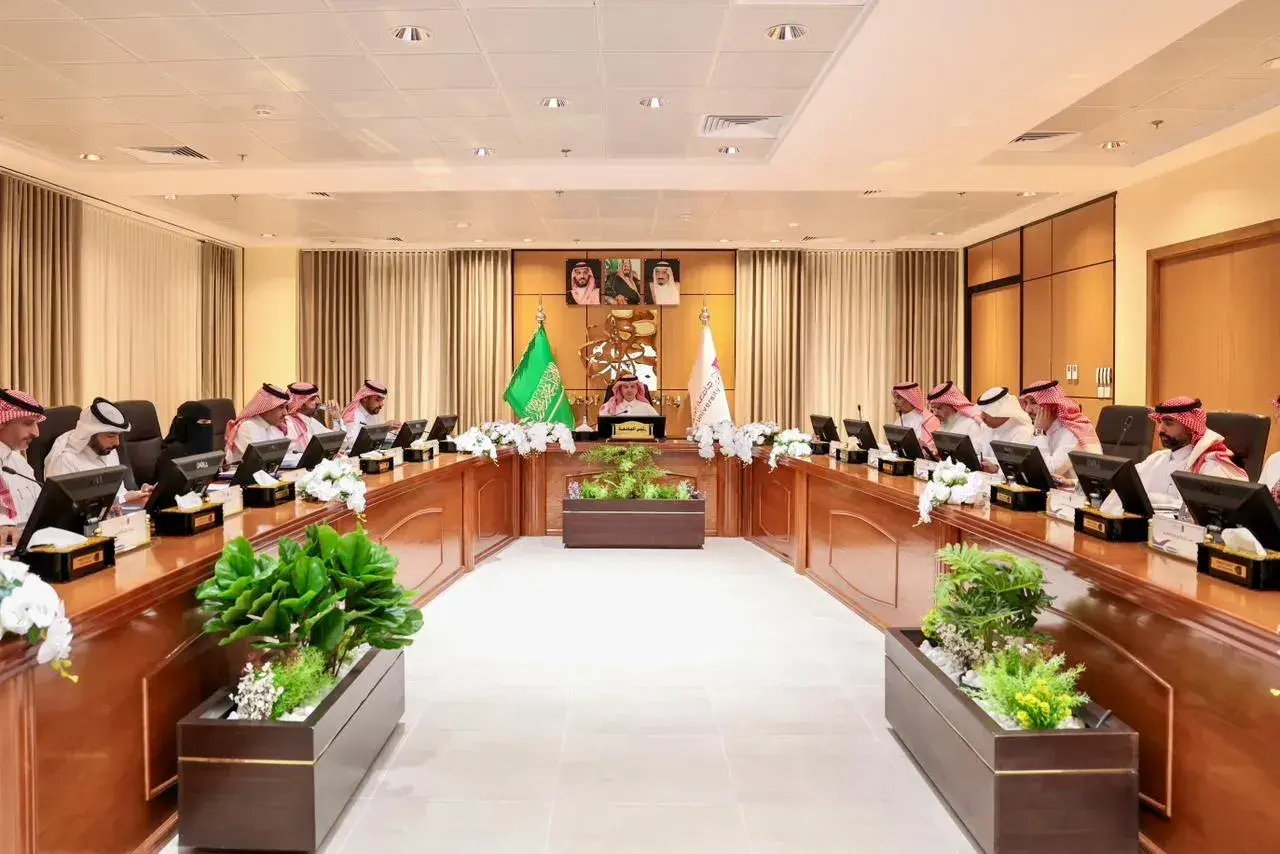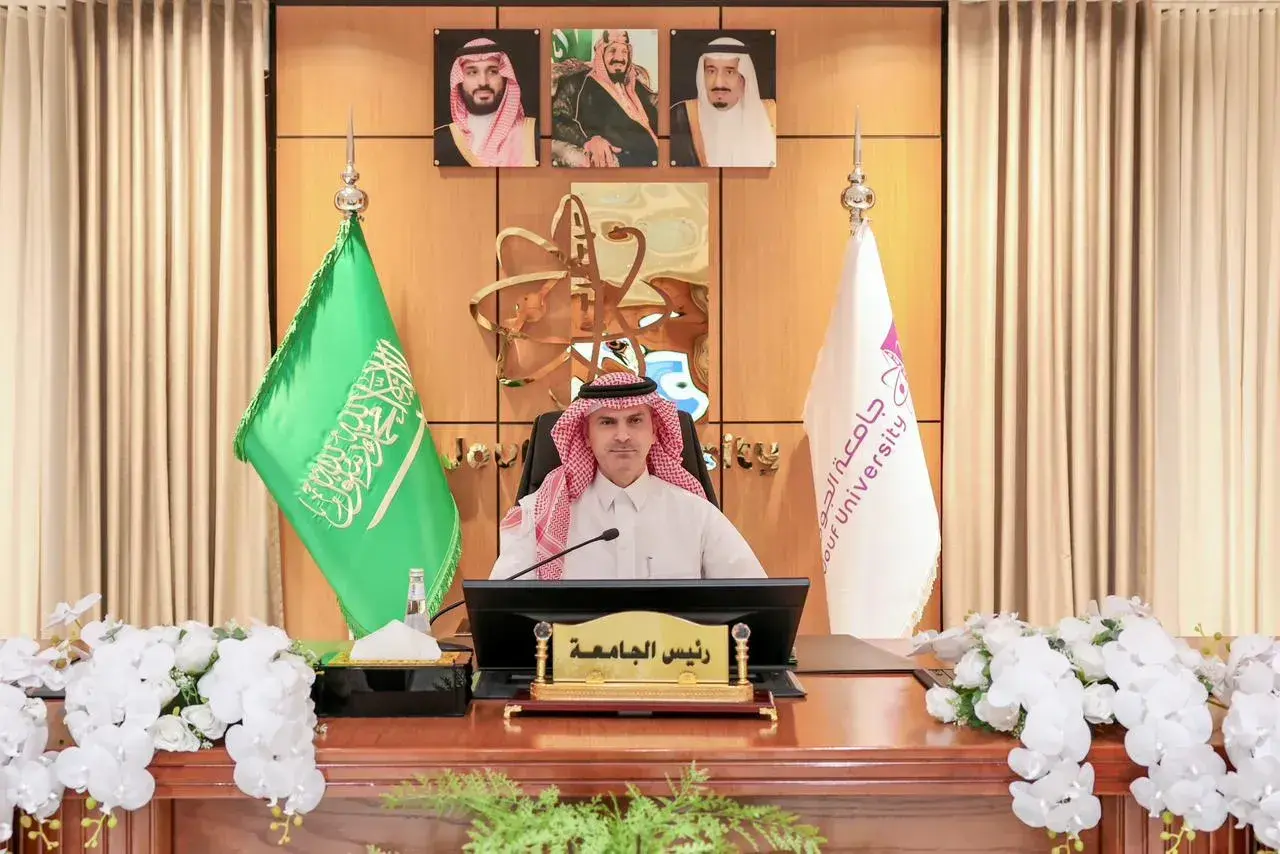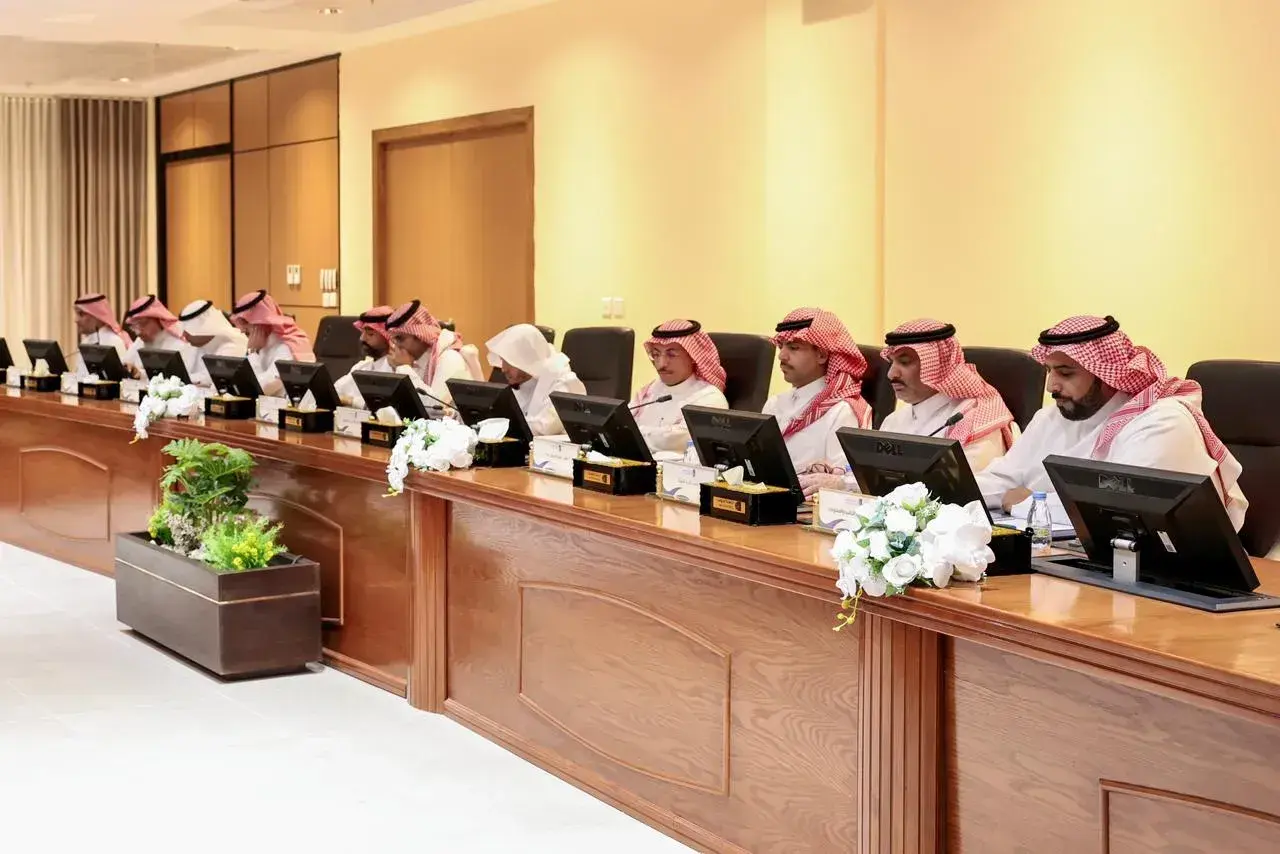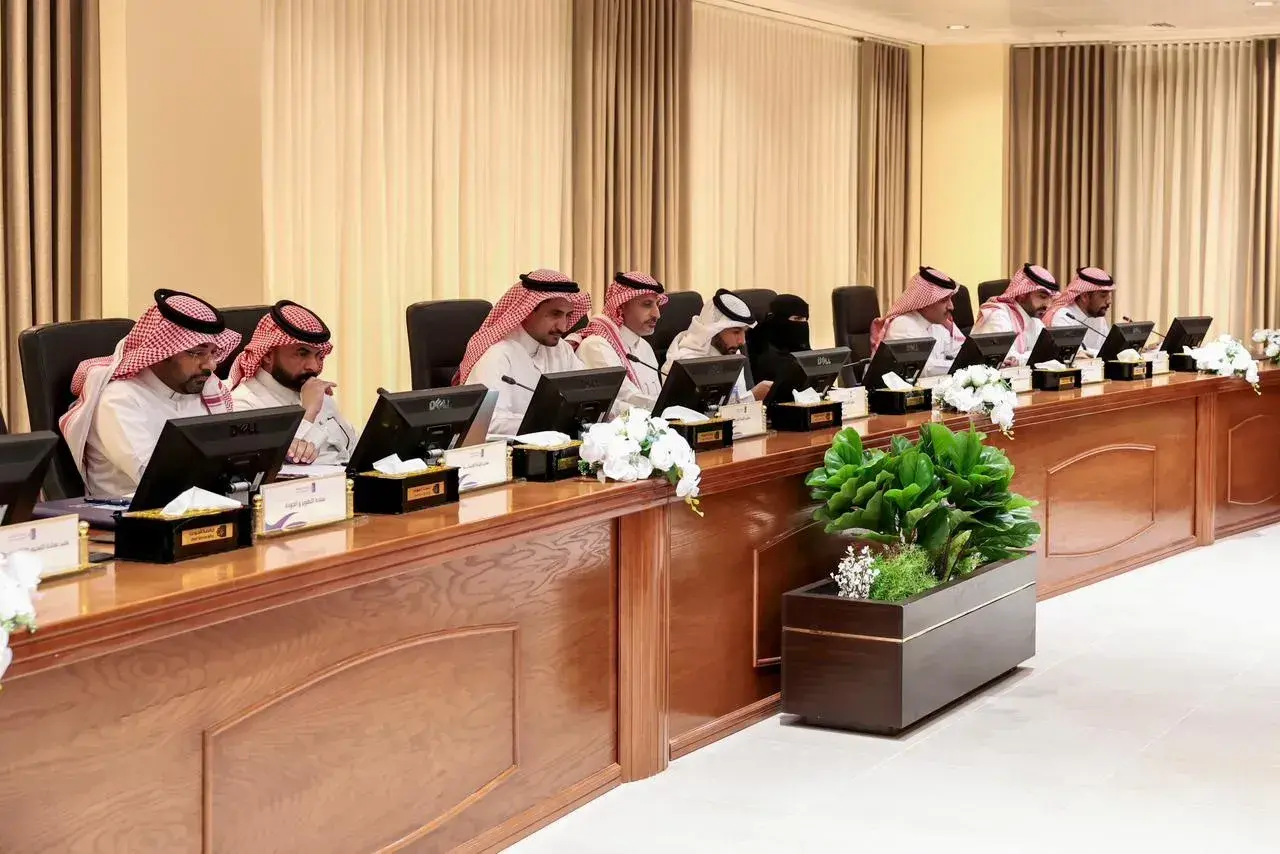Jouf University Council Holds Its Third Session and Approves a Set of Strategic Decisions to Support Academic, Research, and Innovation Development
The Jouf University Council held its third session for the academic year 1447 AH, chaired by His Excellency the University President, Prof. Mohammed bin Abdullah Al-Shaya, and attended by council members including the university’s vice presidents, deans, and community representatives. The session discussed several academic, research, and administrative matters and adopted key decisions that support the university’s progress and strategic direction in alignment with Saudi Vision 2030.
As part of the university’s commitment to expanding and enhancing its postgraduate programs, the Council recommended the approval of a Master of Science in Physical Therapy at the College of Applied Medical Sciences. This program aims to meet labor market needs, strengthen the capabilities of health professionals in advanced rehabilitation, and enhance the quality of healthcare services.


The Council also recommended the approval of a Master of Science in Toxicology at the College of Pharmacy. The program represents an important step toward supporting national health security and developing scientific and research capacities in fields related to toxicology, pharmaceutical regulation, and advanced analytical techniques.
In addition, the Council recommended the establishment of a Chair for Public Health and Disease Prevention Research, aimed at advancing applied studies and preventive initiatives that contribute to raising community health awareness and improving quality of life.
In support of research and innovation in renewable energy, the Council also recommended the establishment of a Chair for Advanced Technologies in Sustainable Energy, which will serve as a research platform that fosters innovation in clean energy and supports the Kingdom’s direction toward economic diversification and sustainability.
The Council further approved the “Jouf Valley” project as a strategic initiative designed to strengthen the university’s ecosystem for research, innovation, and entrepreneurship. The initiative will provide an academic and applied incubator for researchers, innovators, and entrepreneurs, foster the growth of a knowledge-based economy in the region, and enhance strategic partnerships across multiple sectors.
The Council also discussed several academic and administrative topics related to improving the learning environment, enhancing operational efficiency, and ensuring the continued advancement of the university’s performance in line with its strategic goals.


During the session, His Excellency the University President, Prof. Mohammed bin Abdullah Al-Shaya, emphasized that Jouf University is steadily moving forward—by the grace of Allah—in implementing its strategic plans aligned with the goals of Saudi Vision 2030. He highlighted the university’s commitment to developing distinctive academic and research programs that strengthen its national and intellectual role. He added that the approval of these programs, research chairs, and the Jouf Valley initiative reflects the university’s dedication to empowering its human resources, promoting innovation, fostering a culture of scientific research, and building a university environment that contributes to a more advanced and distinguished future.
His Excellency concluded by expressing his appreciation to the Council members for their efforts and cooperation, affirming the university’s continued commitment to launching high-impact initiatives that advance education, research, and community service.




